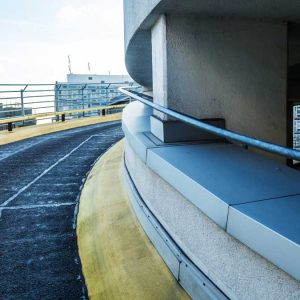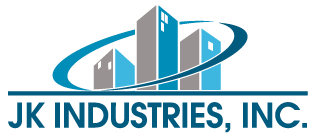How often do expansion joints need joint sealing?
Joint sealing is an essential step in maintaining concrete structures, such as parking garages, concrete buildings, and sidewalks. Expansion joints between sections of concrete strategically control where cracks occur in the concrete. These joints need to be sealed to work effectively. Read on to learn the benefits of joint sealing and how often you should seal joints for concrete maintenance.

The purpose of concrete joint sealing
Have you ever noticed the lines along a concrete building or sidewalk? They aren’t just for decoration. These lines, known as expansion joints, help relieve stress that concrete may undergo during temperature changes, seismic activity, foundation shifts, and more. They can significantly increase the lifespan of a concrete structure by reducing stress across each slab.
Expansion joints need to be sealed periodically to protect against water, dirt, and debris. These elements can hurt the structural integrity of concrete over time. Water can also lead to mold and interior leaks that are costly to repair. Preventative joint sealing eliminates these risks and preserves the concrete for years to come.
How joint sealing works
The joint sealing process varies by structure, but it always involves applying a product over the joint to create a watertight seal. First, we evaluate the silicone or polyurethane product best suited for the structure, and then we fill in the joints using a series of special tools. It’s similar to caulking around a bathtub or applying grout between tiles, only on a much larger, more complex scale.
How often do concrete joints need to be sealed?
Many factors determine when concrete joints need to be sealed. What’s the weather like in the area? Is the concrete exposed to heavy traffic? What type of concrete structure is it, and how old is the concrete? To ensure your building, parking garage, or sidewalk is protected, we recommend regular inspections from a professional concrete company like JK Industries. Give us a call at 405-285-9800 to learn more about joint sealing or to schedule an inspection.
